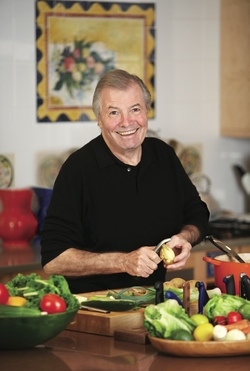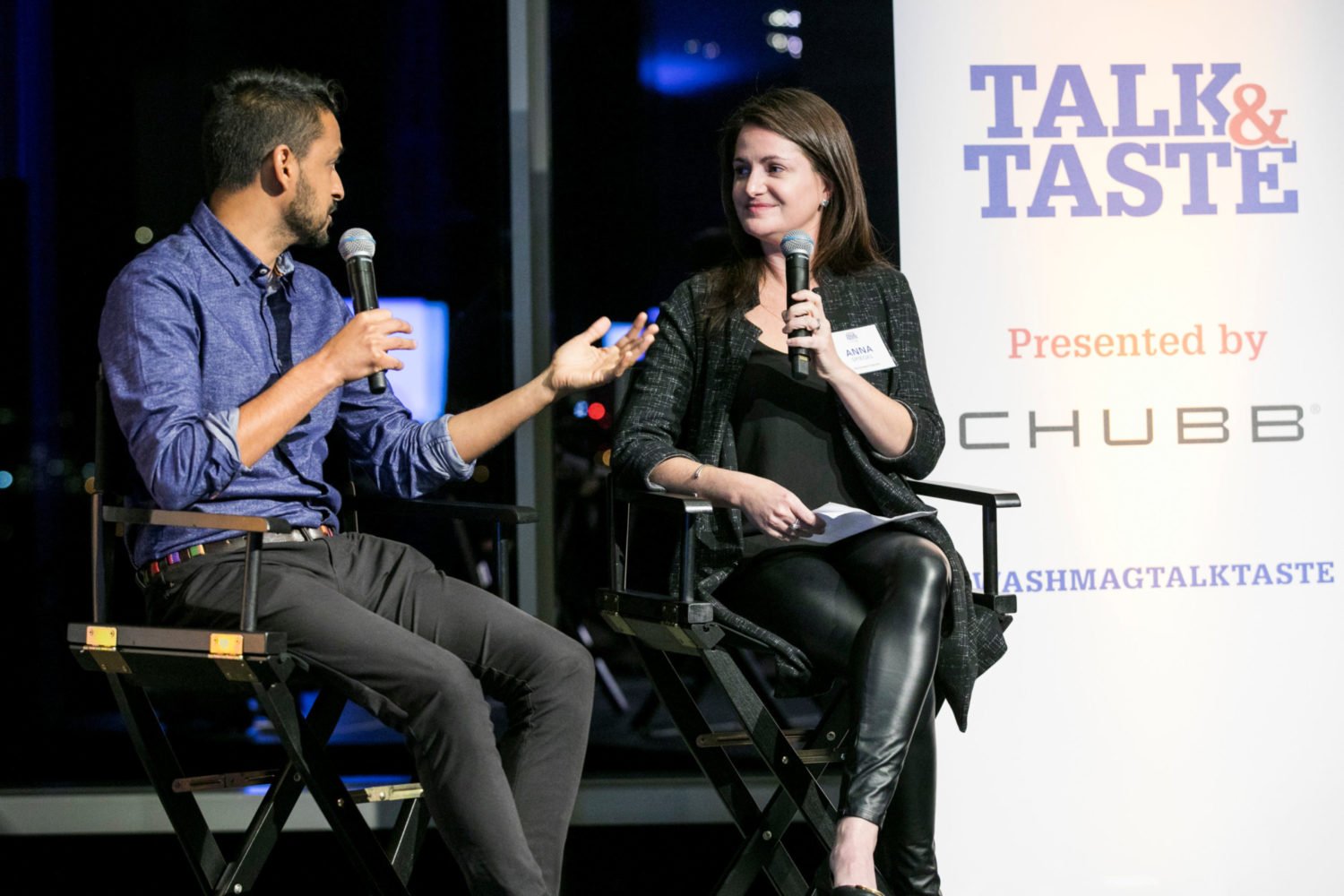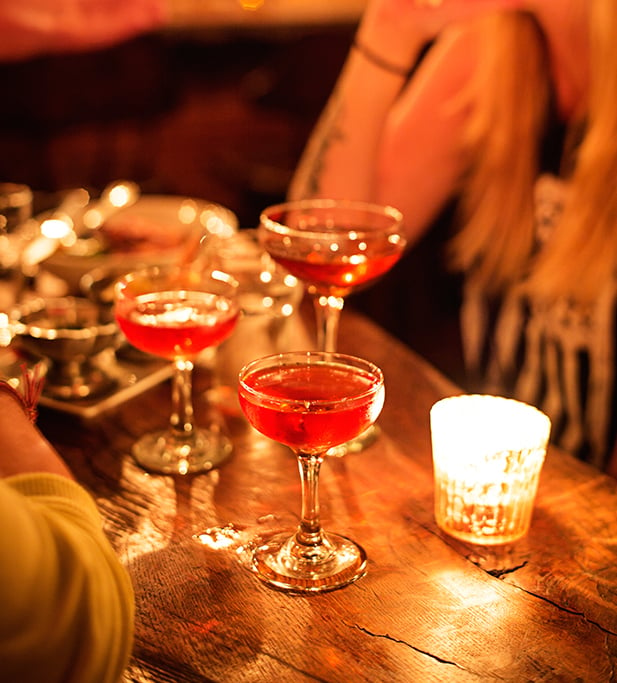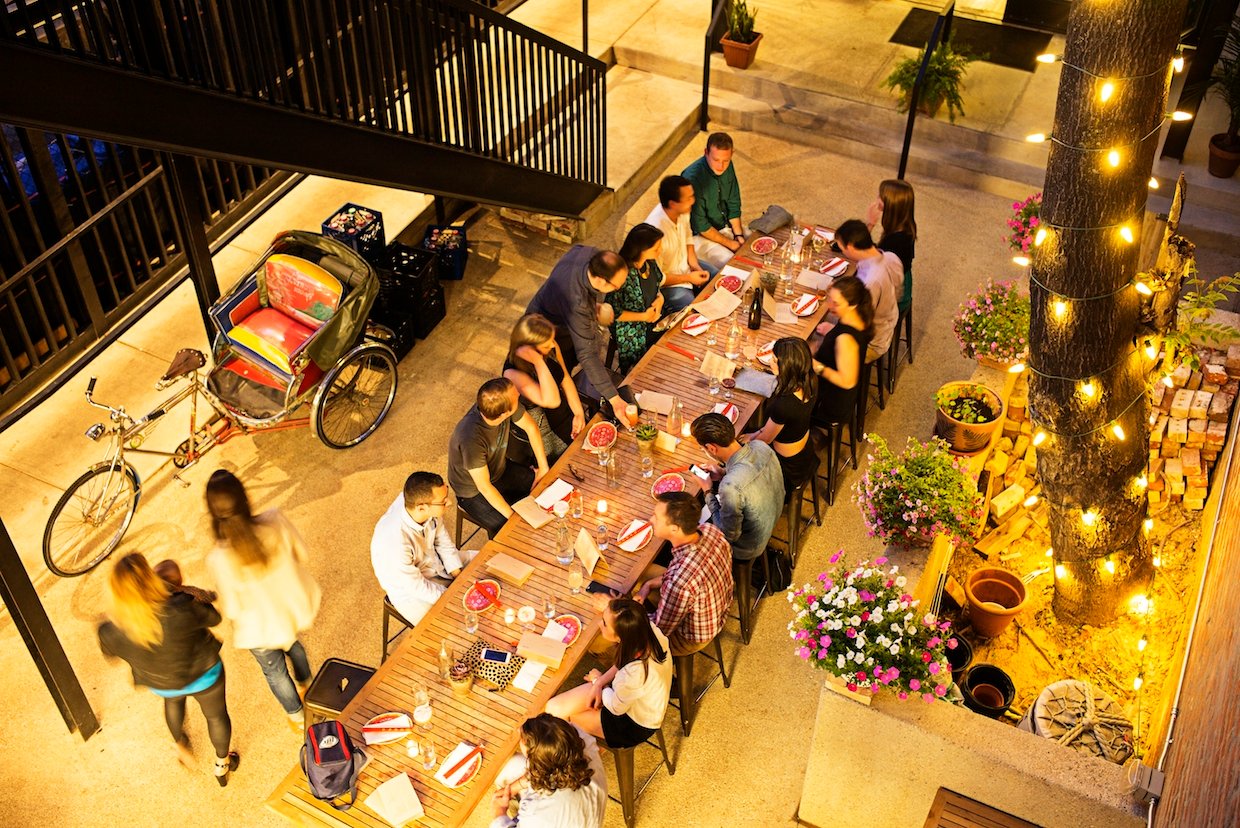
Chef and cooking show star Jacques Pépin is headed to Washington November 5th and 6th to join other household names—think Paula Deen and Giada De Laurentiis—at the Metropolitan Cooking & Entertaining Show at the Washington Convention Center. In the meantime, Pépin is releasing his 22nd cookbook, Essential Pépin: More Than 700 All-Time Favorites from My Life in Food. We caught up with him and chatted about his favorite recipes, how to judge a cook’s talent, and Julia Child’s kitchen.
You were one of the first celebrity chefs with your PBS cooking show with Julia Child. What are some of the biggest differences you see between cooking on television now and then?
“Julia always said, ‘people have to have a good time—it’s television.’ It has to be interesting to a certain extent, but at the end of it, we’d say, ‘What did we teach them? What did they learn?’ Someone the other day said there are 547 cookery shows on television. I don’t know whether that’s accurate or not, but certainly many of them don’t do much cooking. And it’s fine with me. I have 26 new shows, and I’m sure a lot of people will say, ‘Boy, that guy is boring. Cooking and all that.’”
Are there any food shows you don’t like?
“I wasn’t crazy about Hell’s Kitchen. For me food is still, to a certain extent, an act of love. You always cook for the other. You always cook for your friend or your wife or your lover or for your kid or your cousin or your mother. But it’s always giving, and being together. When I saw a show like that where everyone is yelling, everyone gets terrorized, there is no way you can produce great food under that type of condition. You cannot give of yourself.”
Do you like any other forms of culinary media, like reading the magazines or other cookbooks?
“I read Time, Newsweek, and The Week—those are the three magazines that I get. Then I get Food & Wine, and I take a look at it occasionally, but not regularly. That’s my world in a sense, so I kind of escape and go somewhere else.”
In your new cookbook, are there any particular favorite recipes?
“What I make the most often is soup, eggs, and poultry. It’s what I like the most. A leek-and-potato soup or even the black-bean soup—that’s from my wife’s influence—is something we do very often. I love eggs, from skillet eggs to scrambled to omelets. But now you have egg in aspic in the book, and egg in aspic is a great, great family tradition for me. But I think my editor would have been happy if I’d taken it out. For her, a poached egg with meat aspic is complicated, but it’s the type of dish I had when I was a little kid.”
What was the last meal you cooked at home?
“That was last night. I cooked some chicken livers—my wife loves chicken livers—sautéed with shallots. We had a piece of fish—a friend of mine brought me a tautog he caught, so I braised it and we had it with rice. And a piece of cheese.”
Some say the mark of a good cook is how they make eggs. How do you tell a good cook?
“The proof of the pudding is in the taste. I cook with someone like my friend Gloria Zimmerman, and she’s 86 years old. It’s always fantastic, she has a good palate. Now she’s not a restaurant chef, and I can probably work three times as fast as she does. But I do know a fair amount of professional chefs who are very good technicians—who can work very fast—and are relatively lousy cooks. They don’t have much palate. Ultimately you’re a good chef or a great chef: someone like Eric Ripert or Thomas Keller—this is someone who’s going to be a very good technician, a very good craftsman, who will also bring talent to that.”
You’ve spoken about getting to the core of recipes by simplifying them. Have you used more elaborate techniques, like in molecular gastronomy?
“Yeah, a little bit. Even in my DVD I cook saucisson sous vide with a circulator. But to tell you the truth, I worked at Howard Johnson’s in New York from 1960 to 1970, and at that time we called it Cryovacs. We cooked things packed in plastic at a very low temperature for a long time, and it wasn’t sous vide but it was basically the same.”
Are there any trends you’re happy to see gone?
“Certainly, yes! Since the time of nouvelle cuisine there’s been a lessening of cooking in vegetables. In many other things it’s good, but it goes to the extreme. For example, string beans. I love string beans, but for me they must be cooked six, seven minutes. At that point they’re firm, but they taste like string beans. When you drop them in boiling water and then take them out, they’re raw—a lot of the chefs cook them like this. This is ridiculous. Julia [Child] in the ‘80s or ‘90s used to say ‘I hate grilled vegetables. They are burned and raw at the same time.’”
What are most looking forward to in your new PBS show?
“For me it’s always teaching. When I teach at Boston University and the French Culinary Institute, it’s always exciting for me to cook with a group of students and see their eyes light up. If you want to be a professional, whether you want to be a cabinet maker, a surgeon—someone who really works with their hands—you have to be a craftsman first, and really know your trade. The talent comes after.”
You’re coming to Washington for the Metropolitan Cooking & Entertaining Show. Will you have time to visit restaurants?
“I’m going to have a lunch at Citronelle, and I’m looking forward to it because I think Michel Richard is an extraordinary chef.”
What do you think of the Washington food scene?
“I appreciate the couple of times I was there. I went to local markets—Vietnamese and Thai, and they were all very good. That to me is always great, I love to go to markets.”
Do you hang out with any Washington chefs?
“Certainly José Andrés, Michel Richard, a few others. I forget all the names!”
Did you ever visit Julia Child’s kitchen at The Smithsonian?
“Yes, of course. I met Julia in 1960, and for so many, many, many years I cooked in her house in Cambridge in that kitchen. And to see the table where I sat and the stove I use behind glass is kind of freakish.”
You’ve had so many interviews. Are there any questions you like to get the most?
“No, probably not. The question I like the least is when people say, ‘What’s going to be your last meal?’”

















